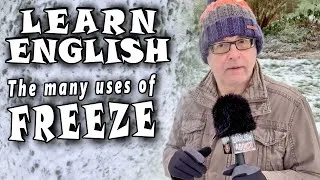Pro přehrání videa dvakrát klikněte na anglické titulky níže.
New videos
Tato stránka vám představí videa na YouTube, která jsou užitečná pro výuku angličtiny. Uvidíte lekce angličtiny vedené špičkovými učiteli z celého světa. Dvojklikem na anglické titulky zobrazené na každé stránce s videem si video přehrajete přímo odtud. Titulky se posouvají synchronizovaně s přehráváním videa. Pokud máte nějaké připomínky nebo požadavky, kontaktujte nás prosím pomocí tohoto kontaktního formuláře.







